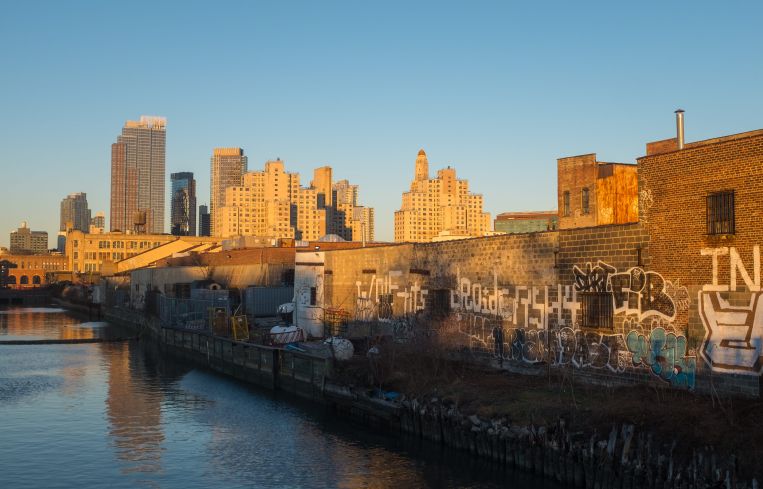Rezoning Likely to Make Gowanus More Diverse, Report Finds
By Nicholas Rizzi August 9, 2021 4:28 pm
reprints
The city’s rezoning of Gowanus, Brooklyn, which some groups tried to sue to stop, would likely make the neighborhood more diverse and less segregated, a new report found.
The report, conducted by Columbia University and New York City Council staff, found that the rezoning calls for 35 percent of the nearly 8,000 new housing units to be set aside for affordable housing, a much greater share than in other recent rezonings.
The nearly 3,000 affordable housing units would be offered to families making between $30,000 to $100,000, or 40 to 80 percent of the area median income, and would help Gowanus “much more closely match the diversity of New York City rather than the population of the local area — a neighborhood that is significantly whiter and wealthier than the City as a whole,” according to the report.
It estimates that 20 to 25 percent of the new housing would be rented by Black families and 25 to 37 percent by Latino families.
“The report shows that in recent decades, Gowanus and surrounding neighborhoods have grown increasingly exclusionary, causing displacement of many lower-income residents of color, and becoming one of the whitest and wealthiest communities in the city,” Council Member Brad Lander, who represents the neighborhood, said in a statement. “We can share it better.”
Landers and others touted the report as one of the first racial-impact studies done for a rezoning, which will soon be required by city law, and as showing the benefit of including them for future plans.
“Racial equity analyses represent a stark break from business as usual in land-use planning,” Lance Freeman, a Columbia professor and one of the co-authors of the report, said in a statement. “Instead of exacerbating or ignoring racial inequality — as much land-use planning has done in the past — racial equity analyses will require policymakers to take into consideration how their actions impact racial equity.
“We hope this report can help change the conversation around the racial impact of rezonings as we work to overcome decades of segregated growth in New York City,” Freeman added.
In June, the New York City Council approved a bill that would require racial-impact studies as part of the city’s long rezoning process in an effort to help curb the displacement of residents from rezoned neighborhoods. The law does not go into effect until June 2022 and was not required for the Gowanus plan.
The controversial Gowanus plan, one of Mayor Bill de Blasio’s most ambitious rezonings, hit a snag earlier this year after community groups sued the city, arguing that COVID-caused online public hearings for the proposal were illegal and inequitable.
A judge issued a temporary restraining order freezing the proposal from moving forward, but state Supreme Court Justice Katherine Levine lifted it in April and the City Planning Commission quickly voted to certify the rezoning, officially kicking off the land-use review process.
Nicholas Rizzi can be reached at nrizzi@commercialobserver.com.



